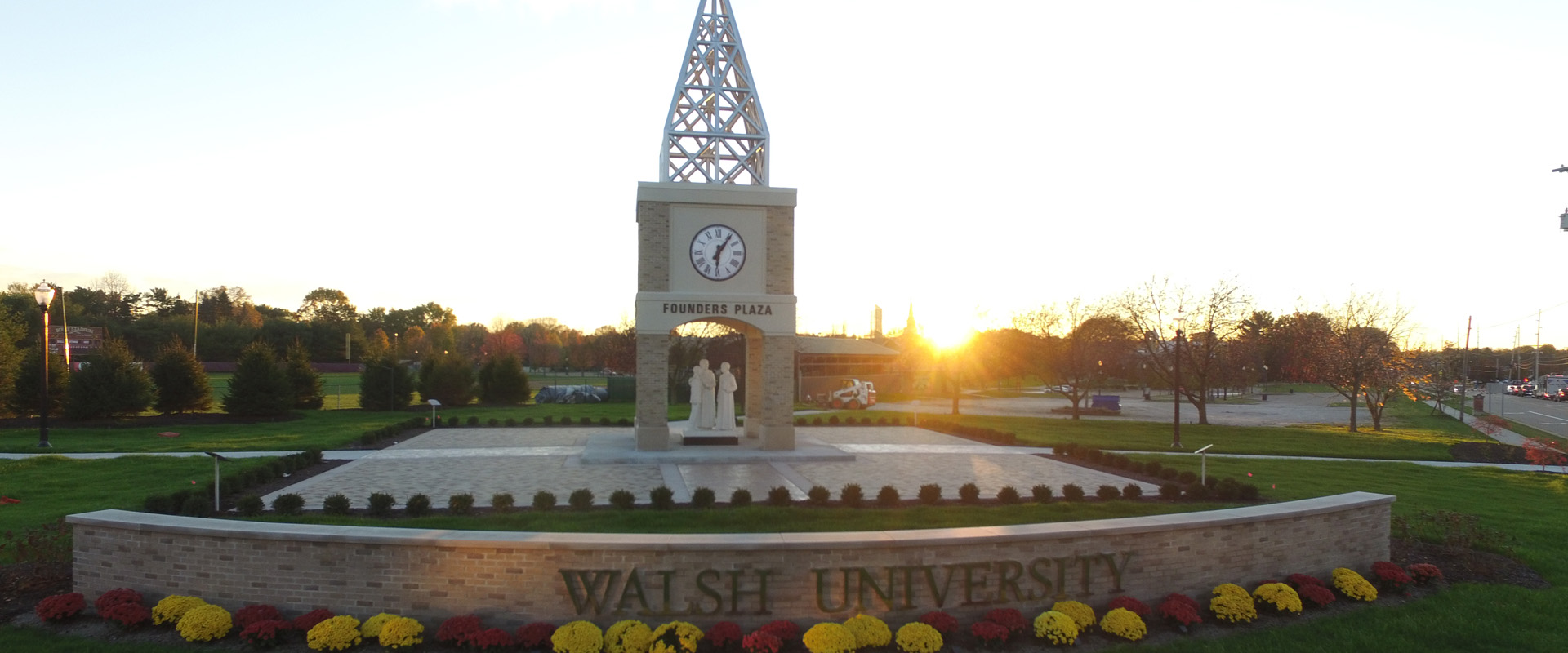
Walsh University’s Fast Track Nursing Program (BSN) is a hybrid, accelerated nursing program designed for busy, working adults. This fast track BSN combines the flexibility of online coursework with in-person laboratory and clinical experiences, offering evening and weekend sessions that support a faster path to a nursing career.
Accelerated format:
complete in as few as 24 months
Average Cost:
$510 per credit hour*
Fast Track Cohorts begin
each Fall and Spring
Earn your degree through a hybrid, accelerated nursing program at an accredited and trusted university, designed for adult learners who want to complete a BSN in less time than a traditional program while maintaining essential hands-on clinical training.
At Walsh University, students benefit from:
As part of Walsh’s hybrid, accelerated fast track nursing program, nearly every nursing course includes hands-on laboratory and clinical experiences conducted in state-of-the-art facilities designed to mirror real hospital environments. Clinical placements at healthcare facilities throughout Northeast Ohio advance in complexity as students progress through the program, aligning with online coursework and the accelerated pace of study.
Registered nurses are in continued demand across the U.S., with the Bureau of Labor Statistics projecting about 5% job growth for RNs from 2024 to 2034, faster than average, and hundreds of thousands of openings annually due to growth and workforce replacement.
A high percentage of Walsh nursing students pass the NCLEX and go on to practice at local and national healthcare facilities. Many graduates secure full-time nursing roles after completing clinical experiences, and students interested in advanced practice can transition into Walsh’s Master of Science in Nursing (MSN) program.
Positions Walsh University graduates have held include:
According to the Bureau of Labor Statistics, the median annual wage for RNs was approximately $93,600 in 2024, with employment projected to grow about 5% through 2034.
The Fast Track BSN program is designed for motivated adult learners prepared for an accelerated academic schedule.
Learn more about Walsh's traditional BSN nursing program
Please contact Julianne Gemberling at jgemberling@walsh.edu for more information.
*Factoring in work experience, transfer credits, and aid. Every student’s situation is different. For a customized estimate, please contact the Office of Admissions.
See how Walsh University’s Fast Track BSN program combines online coursework with hands-on labs and clinical experiences in an accelerated, hybrid format.
*All pre-requisite courses are available in a hybrid, accelerated format (8-weeks) at the program reduced tuition cost rate. Please check with your Enrollment Manager prior to registering for a course at another institution to ensure it is equivalent to the prerequisite course at Walsh. If you choose to take the prerequisites at a local community college, your grade in the courses must be a B or higher. If you choose to take the prerequisites at another institution, your grade must be a C or higher in order to transfer in as credit. All science courses must have been completed within the last seven years.
This course examines the role of research in nursing practice and improving health outcomes. Students will analyze evidence-based literature, applying research strategies to enhance quality, safety, and person-centered care. Emphasis is placed on integrating evidence-based principles andutilizing nursing informatics within complex systems to promote health outcomes related to safety, cost, and clinical quality improvements.
This course focuses on the nursing care of various populations in the community. The client is defined as populations influenced by the various socialdeterminants of health. This course emphasizes disease prevention, risk reduction, and health promotion of the population. Catholic social teachings are integrated into the care of all populations. Population health principles are applied through a partnership approach to implement a service-learning project.
This course emphasizes the delivery of nursing care to children within the family unit. Students will apply nursing knowledge and evidence-based principles to address the developmental, physical, and psychosocial needs of children. Students apply developmentally appropriate assessment techniques, communication skills, professionalism, and engage in interdisciplinary partnerships for enhancing the strengths of the family unit.
This course centers on the delivery of person-centered care for various populations within complex healthcare systems. Application of the leadership role is emphasized. Population health principles are incorporated to improve health outcomes and develop evidence-based care coordination plans supporting individuals and their families in self-care management. Students synthesize leadership and professionalism through application of the nursing process.
This course centers on the pathophysiological multifaceted health concerns of critically ill adults. Clinical decision-making is explored through integration of evidence-based practice into delivery of therapeutic nursing interventions and family-centered care. Leadership skills and informatics are incorporated into interdisciplinary collaboration and application of ethical and legal principles of professional nursing.
This course focuses on the graduating seniors’ self-analysis of their development in the professional nursing role and readiness for practice. The delivery of person-centered care to diverse populations through interdisciplinary and evidence-based practice are emphasized. The incorporation of informatics and technology to promote safe and competent care are evaluated.
